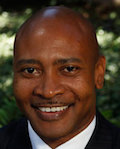The bitter truth buried in recent headlines about how the political consulting company – Cambridge Analytica – used social media and messaging, primarily Facebook and WhatsApp, to try to sway voters in presidential elections in the US and Kenya is simply this: Facebook is the reason why fake news is here to stay.
Various news outlets, and former Cambridge Analytica executives themselves, confirmed that the company used campaign speeches, surveys, and, of course, social media and social messaging to influence Kenyans in both 2013 and 2017.
The media reports also revealed that, working on behalf of US President Donald Trump’s campaign, Cambridge Analytica had got hold of data from 50 million Facebook users, which they sliced and diced to come up with “psychometric” profiles of American voters.
The political data company’s tactics have drawn scrutiny in the past, so the surprise of these revelations came more from the “how” than the “what.” The real stunner was learning how complicit Facebook and WhatsApp, which is owned by the social media behemoth, had been in aiding Cambridge Analytica in its work.
The Cambridge Analytica scandal appears to be symptomatic of much deeper challenges that Facebook must confront if it’s to become a force for good in the global fight against false narratives.
These hard truths include the fact that Facebook’s business model is built upon an inherent conflict of interest. The others are the company’s refusal to take responsibility for the power it wields and its inability to come up with a coherent strategy to tackle fake news.
Facebook’s biggest challenges
Facebook’s first issue is its business model. It has mushroomed into a multibillion-dollar corporation because its revenue comes from gathering and using the data shared by its audience of 2.2 billion monthly users.
Data shapes the ads that dominate our news feeds. Facebook retrieves information from what we like, comment on and share; the posts we hide and delete; the videos we watch; the ads we click on; the quizzes we take. It was, in fact, data sifted from one of these quizzes that Cambridge Analytica bought in 2014. Facebook executives knew of this massive data breach back then but chose to handle the mess internally. They shared nothing with the public.
This makes sense if the data from that public is what fuels your company’s revenues. It doesn’t make sense, however, if your mission is to make the world a more open and connected place, one built in transparency and trust. A corporation that says it protects privacy while also making billions of dollars from data, sets itself up for scandal.
This brings us to Facebook’s second challenge: its myopic vision of its own power. As repeated scandals and controversies have washed over the social network in the last couple of years, CEO Mark Zuckerberg’s response generally has been one of studied naivete. He seems to be in denial about his corporation’s singular influence and position.
Case in point: When it became clear in 2016 that fake news had affected American elections, Zuckerberg first dismissed that reality as “a pretty crazy idea.” In this latest scandal, he simply said nothing for days.
Throughout the world, news publishers report that 50% to 80% of their digital traffic comes from Facebook. No wonder Google and Facebook control 53% of the world’s digital and mobile advertising revenue. Yet Zuckerberg still struggles to accept that Facebook’s vast audience and its role as a purveyor of news and information combine to give it extraordinary power over what people consume, and by extension, how they behave.
All of this leads us to Facebook’s other challenge: its inability to articulate, and act on, a cogent strategy to attack fake news.
The fake news phenomenon
When Zuckerberg finally surfaced last month, he said out loud what a lot of people were already were thinking: there may be other Cambridge Analyticas out there.
This is very bad news for anyone worried about truth and democracy. For in America, fake news helped to propel into power a man whose presidential campaign may have been a branding exercise gone awry. But in countries like Kenya, fake news can kill.
Zuckerberg and his Facebook colleagues must face this truth. Fake news may not create tribal or regional mistrust, but inflammatory videos and posts shared on social media certainly feed those tensions.
And false narratives spread deep and wide: In 2016, BuzzFeed News found that in some cases, a fake news story was liked, commented and shared almost 500,000 times. A legitimate political news story might attract 75,000 likes, comments and shares.
After Zuckerberg was flogged for his initial statements about fake news, Facebook reached out to the Poynter Institute’s International Fact-checking Network in an effort to attack this scourge. Then in January 2018, the social network said that it was going to be more discriminating about how much news it would allow to find its way into the feeds of its users. In other words, more videos on cats and cooking, less news of any kind.
The policy sowed a lot of confusion and showed that Facebook is still groping for how to respond to fake news. It was also evidence that the social network does not understand that fake news endangers its own existence as well as the safety and security of citizens worldwide –- especially in young democracies such as Kenya.
Angry lawmakers in the US and Europe, along with a burgeoning rebellion among its vast audience, may finally grab Facebook’s attention. But we will only hear platitudes and see superficial change unless Facebook faces hard truths about its reliance on data, accepts its preeminent place in today’s media ecosystem and embraces its role in fighting fake news.
Until then, we should brace ourselves for more Cambridge Analyticas.
Stephen Buckley, Lecturer, The Aga Khan University Graduate School of Media and Communications (GSMC)
This article was originally published on The Conversation. Read the original article.














